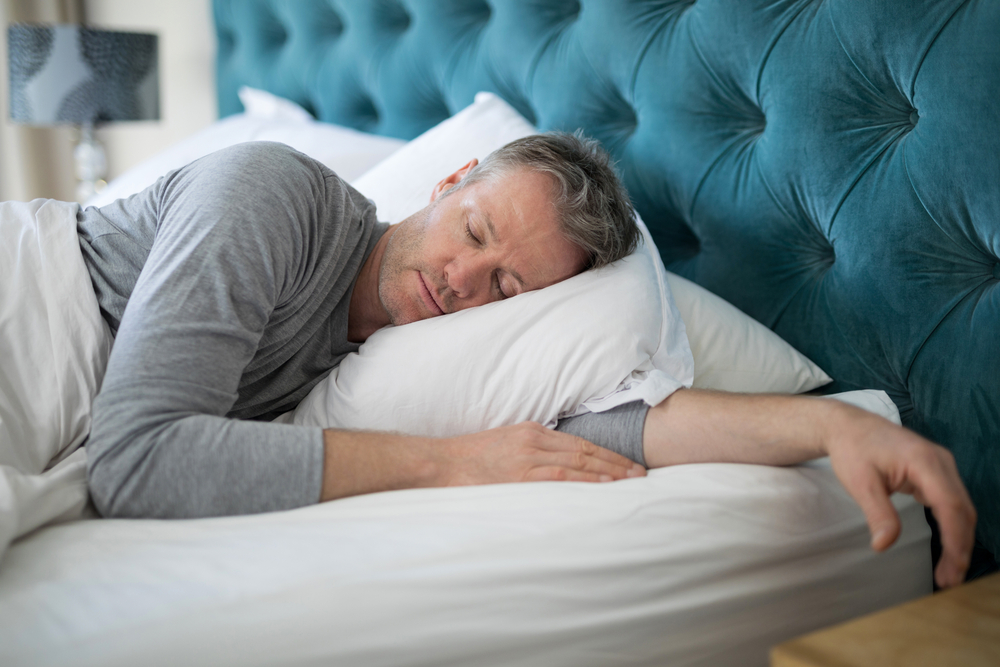Hello Folks! Are you aware of the power of deep sleep in your life? It’s not just about getting enough hours of shut-eye, but also about achieving the right kind of sleep. Deep sleep, also known as slow-wave sleep, is an incredibly important stage of sleep that plays a significant role in our overall health and well-being.
Now, you might be wondering, how much deep sleep do you need? Well, that varies from person to person, but on average, adults require about 1-2 hours of deep sleep every night, which is about 20-25% of their total sleep. However, some medical conditions and lifestyle factors can impact the quantity and quality of deep sleep you get.
But don’t worry, there are techniques and tricks to help you achieve the perfect deep sleep. From creating a comfortable sleep environment to practicing relaxation techniques, and even incorporating the right kind of music, we’ll cover everything you need to know to get a peaceful and rejuvenating night’s sleep.
So, let’s dive in and explore the fascinating world of deep sleep together!
Importance of Deep Sleep

source: pinterest.com
Deep sleep is essential for various functions of our body, including physical restoration, hormone regulation, and cognitive performance. During this stage of sleep, the body produces more growth hormones that are necessary for tissue repair and growth. It also regulates the balance of insulin and glucose, which are crucial for metabolic health. Moreover, deep sleep is necessary for the consolidation of memories and the enhancement of learning and creativity.
How much deep sleep do you need?
Imagine two adults, Alex and Maria, who both need eight hours of sleep each night. Alex, who is a healthy 30-year-old, typically gets 2 hours of deep sleep, which is 25% of their total sleep time. Meanwhile, Maria, who is also 30 years old but has a medical condition that affects her sleep quality, typically only gets 1 hour of deep sleep, which is 12.5% of her total sleep time.
In this scenario, we can see that the amount of deep sleep needed varies from person to person. While Alex requires 2 hours of deep sleep to feel fully rested, Maria can get by with only 1 hour of deep sleep. This is because the quality of deep sleep matters just as much as the quantity, and Maria’s medical condition affects the quality of her deep sleep.
It’s also worth noting that as we age, the amount of deep sleep we get tends to decrease. For example, a healthy 20-year-old may need 2 hours of deep sleep, while a healthy 60-year-old may only need 1 hour of deep sleep. This is because our bodies naturally produce less of the hormones that promote deep sleep as we age.
How To Get Into Deep Sleep?
Getting enough deep sleep is crucial for our overall health and well-being. Here are some techniques that you can try to improve the quality and quantity of your deep sleep:
Stick to a regular sleep schedule:

source: pinterest.com
Maintaining a consistent sleep schedule by going to bed and waking up at the same time every day can help regulate your body’s internal clock, which is responsible for controlling your sleep-wake cycle. This can improve the quality of your sleep, including your deep sleep. For example, if you usually wake up at 6:00 am during the week, try to maintain this schedule on weekends too.
Create a comfortable sleep environment:
Your bedroom should be a relaxing and comfortable space that promotes sleep. Aim to keep the room cool, dark, and quiet, as these conditions can help you fall and stay asleep. Consider investing in a comfortable mattress and pillows that support your body and help you maintain a neutral sleeping position. You can also try using white noise machines or earplugs to block out any outside noises that may disrupt your sleep.
Practice relaxation techniques:
Activities such as meditation, deep breathing, and progressive muscle relaxation can help calm your mind and body before sleep. These techniques can help reduce stress and anxiety, which can interfere with your sleep quality. For example, try taking deep breaths for several minutes before bedtime or practicing a guided meditation using an app like Headspace or Calm.
Avoid caffeine and alcohol:

source: pinterest.com
Caffeine and alcohol can interfere with your sleep quality and prevent you from getting into a deep sleep. Caffeine is a stimulant that can make it harder for you to fall asleep, and alcohol can disrupt your sleep cycle and cause you to wake up frequently throughout the night. It’s a good idea to steer clear of these substances for a few hours before you plan to go to bed.
By incorporating these techniques into your bedtime routine, you can improve the quality and quantity of your deep sleep, allowing you to wake up feeling refreshed and rejuvenated each morning. Remember, everyone’s sleep needs are different, so it’s essential to find what works best for you and stick to it.
Music For Deep Sleep
Music can be a great tool to help you relax and get into a deeper state of rest. Here are a few types of music that can help promote deep sleep:
Classical music:
If you’re a fan of calm and slow-paced music, classical tunes like Mozart and Brahms could be just what you need to slow down your heart rate and get you in the mood for sleep. Plus, classical music has been shown to reduce stress and anxiety, which can be major factors in disrupting your sleep.
Nature sounds:
Whether it’s the sound of raindrops, waves crashing on the shore, or birds singing in the distance, the sounds of nature can create a calming and peaceful environment that’s perfect for getting some quality shut-eye. Nature sounds can also help block out other noises that might wake you up during the night.
White noise:

source: pinterest.com
If you’re someone who’s easily disturbed by sounds like a snoring partner or a loud neighbor, white noise could be your new best friend. White noise is a type of sound that contains all frequencies in equal amounts, and it can help drown out other sounds that might be keeping you up at night.
When it comes to choosing music for sleep, it’s important to go with whatever feels most relaxing and soothing to you. You might find that different types of music work better at different times, or that you prefer to listen to music through headphones or a speaker. The key is to experiment and find what works best for you. And remember, music is just one piece of the puzzle when it comes to getting better sleep – it’s also important to establish a consistent sleep schedule, create a comfortable sleeping environment, and wind down with relaxing activities before bedtime.
Conclusion
In conclusion, deep sleep is crucial for our physical and mental restoration, and there are several techniques and tools that we can use to promote it. By incorporating some of the techniques discussed above, such as sticking to a regular sleep schedule, creating a comfortable sleep environment, practicing relaxation techniques, and using music for deep sleep, you can improve the quality and quantity of your deep sleep, leading to better health and well-being. Visit Live Enhanced for more ideas.





